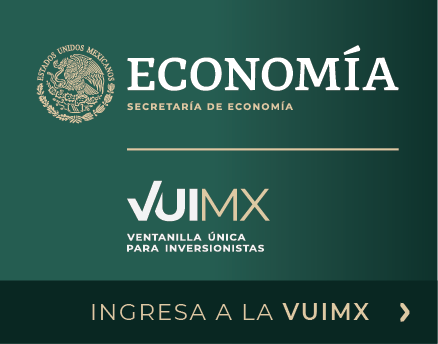Last review date: May, 2024
Regional Development
Diverse realities and development processes coexist in Mexico as a consequence of the country’s great territorial extension and its climatic and population diversity. In this context, regional development programs enable the society to attend problems such as poverty, unemployment and productivity in a more efficient way than if they were to be solved at a national level.
Historically, planning processes in Mexico have been carried out from a regional development perspective. As a consequence, the agencies and entities of the federal government consider this approach in the definition and implementation of policies and programs.
Datasheets by Federal Entity
The “Ventanilla Única para Inversionistas” (VUI MX®) has among its objectives to promote and guide national and foreign investment, facilitating investors’ decision-making regarding the establishment of their projects in Mexico.
The VUI MX® makes available state datasheets containing relevant information on key aspects of investments, such as infrastructure, communication routes, potential sectors, Mexican talent, and the availability of other goods and services, organized by geographical location in the national territory.
These datasheets are designed to provide investors with a clear and comprehensive view of investment opportunities in different regions of the country, thereby facilitating decision-making to materialize their investments.
Emerging and SustainAble Cities Program (ESC)
The Emerging and Sustainable Cities Program (ESC) is a technical assistance program that provides direct support to the governments of intermediate cities in Latin America and the Caribbean that have an important demographic and economic growth.
This Program arises from the Emerging and Sustainable Cities Initiative (ESC), launched by the Inter-American Development Bank (IADB) in response to the needs of urban development in intermediate cities in Latin America.
The ESC uses a comprehensive and interdisciplinary approach to identify, organize and prioritize urban interventions to address the main obstacles that impede the sustainable growth of emerging cities in Latin America and the Caribbean. This cross-cutting approach is based on three pillars:
- Environmental sustainability and climate change
- Sustainable urban development
- Fiscal sustainability and governance
Likewise, the ESC has created the Urban Dashboard, a publication which allows tthe exploration and comparison of more than 150 quantitative indicators, public opinion polls and interactive maps of intermediate cities in Latin America and the Caribbean. These are cities that have an outstanding economic and population growth, and receive technical assistance from the IADB.
In Mexico, local governments, Banobras and the IADB have been working on the definition and implementation of specific action plans based on ESC recommendations and methodology for the following identified cities:



